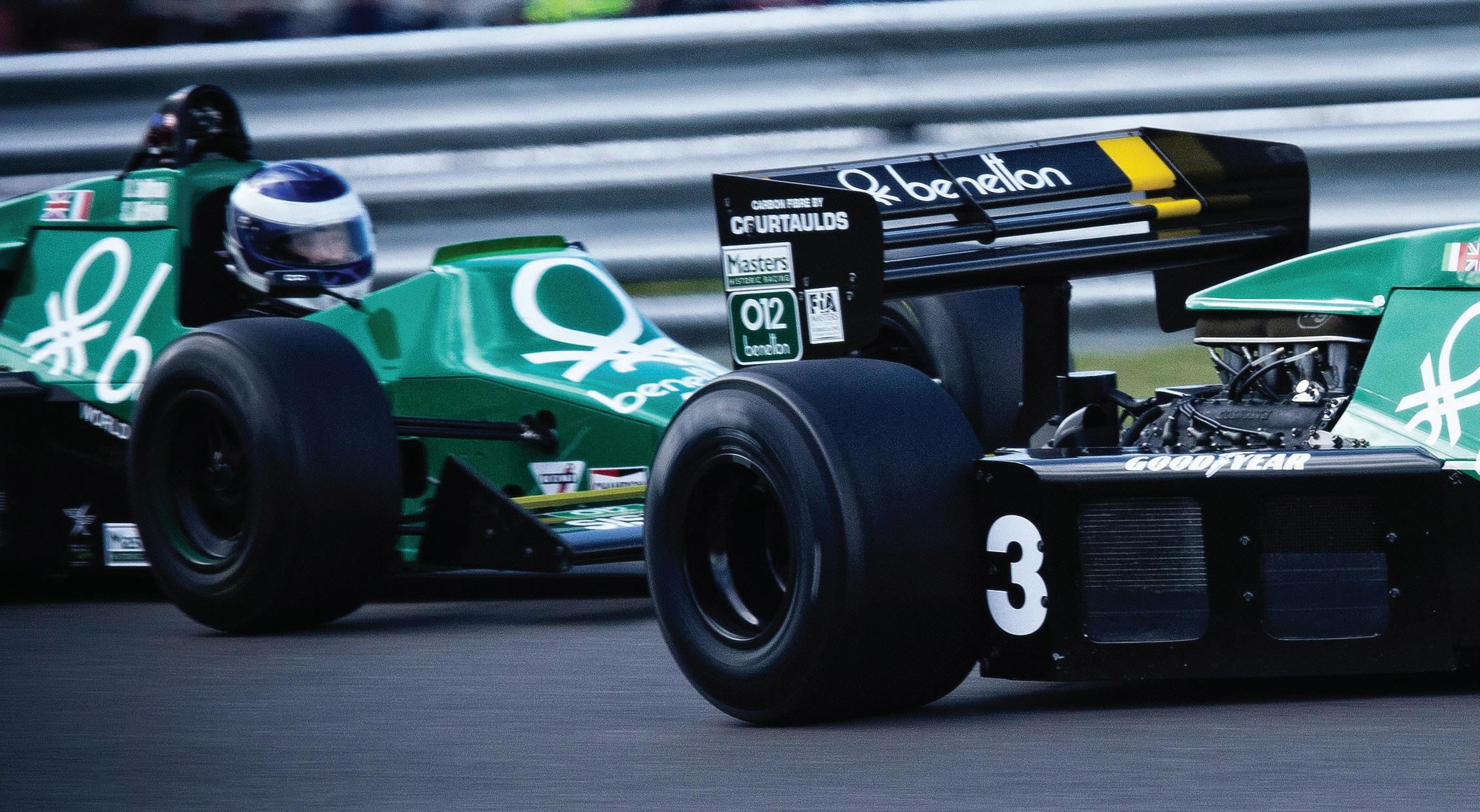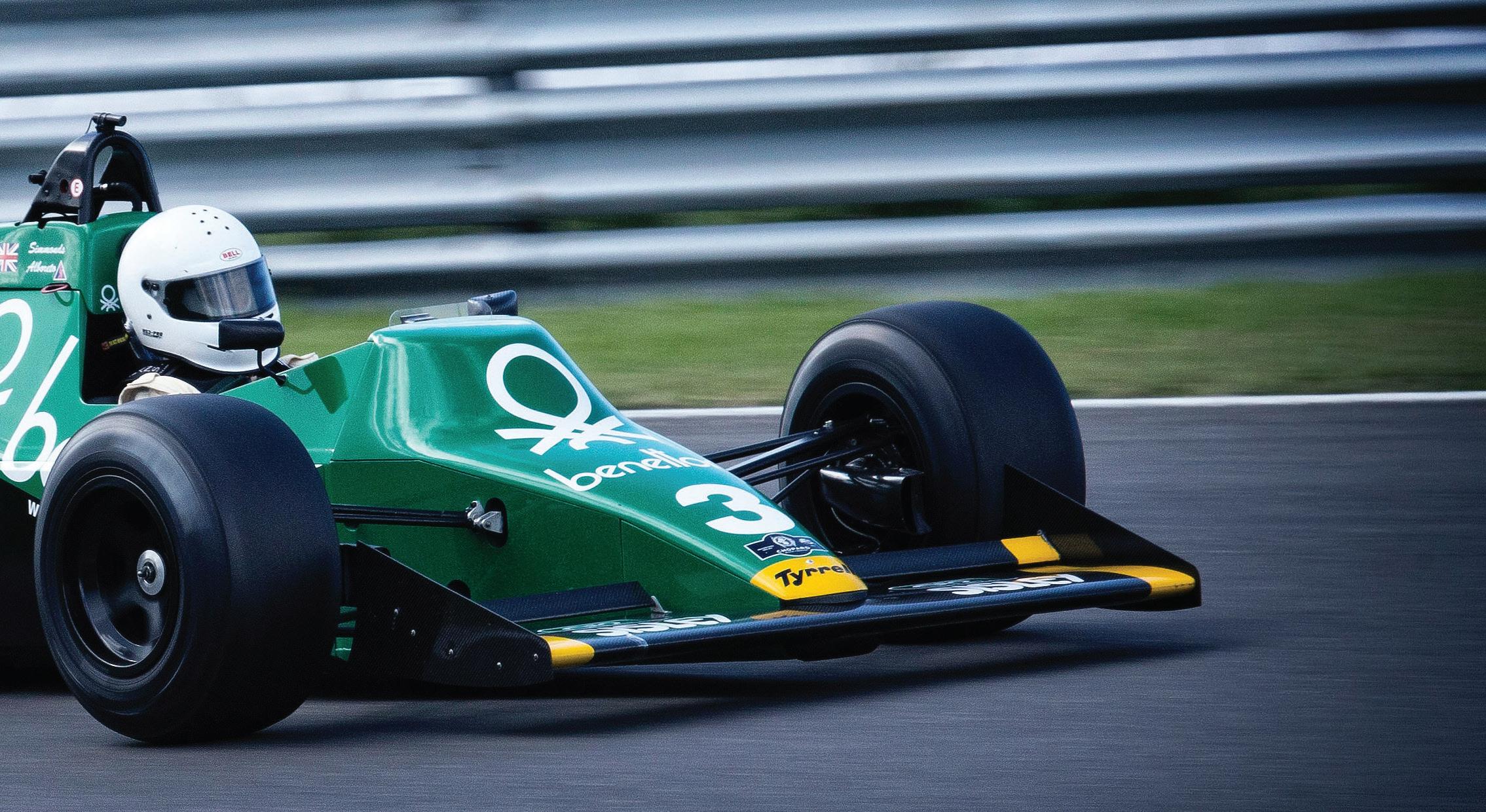
5 minute read
The Importance of Shifting Genres
Words By Oliver Land
For this issue, I’m going to change my format a little, and discuss something I feel is super important. Like any form of art, music has so many genres, sub genres and niche little styles that it can be a little scary. However, I think it’s also one of the best things about it. You can only really appreciate this, though, if every so often you switch up what you listen to!
I was born in England and spent the first ten years of my life there, with both of my very English parents. Inevitably, this made a huge impact on my music taste! My mum took it upon herself to teach me about the Mods and Rockers, and the Battle of Britpop, both of which I still find fascinating, while my dad had a little more out their taste in music, teaching me about goth bands like Bauhaus and Sisters of Mercy. Both of them taught me, and continue to teach me, about all sorts of interesting bands and artists, almost all of which fall into my Spotify rotation. I’ve heard it said that it’s not until high school, when you’re a teenager and you want to rebel, that you really discover your own taste in music. While this was most definitely true for me (like you will see) these songs formed the bases for me and what I would become interested in.
sure exactly how I stumbled across this vast chasm of music that I’d never heard of, but I was hooked immediately. Trying to explain why I like the genre while I’m watching my word count, I feel will be impossible, but this is still the community I am closest to. Going to as many gigs as I can, and listening to almost everything I can get my hands on, I’ve come to know the genre about as well as I can, and yet I still must explain what the whole deal is every time I mention it in front of my mother.
Much to my parents’ horror, in high school I discovered something new and very exciting. Metal! I’m not
I think the point I’m trying to make, without writing a full argumentative essay, is that by being open to other genres and ideas, I discovered a new thing that has become a major part of my identity. Much like the bands themselves that try different albums in different styles (a good example would be Gorillaz, switching up their albums as they grow. A bad example, and a personal vendetta of mine, would be the laziness in Muses last couple of albums. If you want to argue this point, please let me know.), I continue to try other music, and as a drummer I listen to a fair amount of jazz and rock music. A housemate of mine has convinced me to try more mainstream rap music, and I’m discovering it’s as deep and varied as metal, and much like it, there is something for everyone. I feel for people who only listen to one genre or era of music, after all there’s whole worlds of art they’re missing out there.
© Harry Kellaway
Why Formula 1 is the most important sport on Earth!

Words by Blake Walden
In 2023, the world is pushing toward a greener, smarter and cleaner future, so why do we still go racing? On the surface it is easy to look at Formula 1 and think ‘this is the most antithetical activity humans can perform in the pursuit of a greener future.’ …Or is it? Let’s examine some of the incredible ways Formula 1 technologies have been applied to create that greener future.
Power Units
The first thing that comes to mind when thinking about the technology of Formula 1 is the Power Unit. Note the term Power Unit and not simply ‘engine’ as modern Formula 1 cars employ a hybrid powertrain consisting of both a battery and ICE (Internal Combustion Engine).
In 2014, the FIA announced plans to change the regulated engine spec from a 2.4l V8 to a 1.6l V6 Hybrid. This change saw an increase in thermal efficiency, i.e. how much energy is converted from combustion of fuel into momentum, that produced 25% less CO2 emissions and 20% more power. By 2019, the shrieking V6 hybrids had achieved over 50% thermal efficiency, an enormous increase on the 29% efficiency of the howling V8’s. These were the most thermally efficient PU’s on earth.
That 20% increase in efficiency is already present in the cars we buy today; with more manufacturers than ever adopting these innovations to improve the efficiency of their vehicles, leading to cooler cities, fewer emissions and less fuel burnt.
Innovations in the hybrid systems of Formula 1 cars such as the MGU-K (an iteration on mechanical KERS systems) have also benefited FEV’s, helping recover thermal energy from braking and converting it into deployable battery energy. Today, many buses employ this technology. On the Isle of Eigg (which isn’t connected to the UK’s power grid) the same KERS flywheel energy storage systems are used as a primary energy source.
Formula 1 intends to transition to fully synthetic carbon-neutral racing fuels by 2026. These will be the most efficient liquid fuels on earth, according to those involved with the projects, and be usable in consumer vehicles as well. If successful, this fuel may prove to be another step in preventing the further pillage of Mother Gaia for fossil fuels.

Aerodynamics
Innovations in the way manufacturers manage aerodynamic forces around their cars are essential for achieving peak efficiency. The Mercedes EQS, a fully electric S-class sister car, sports the lowest drag coefficient of any vehicle on public roads at 0.2, this magic is credited largely due to insights from the Mercedes F1 technologies division.
These aerodynamic gifts aren’t applied only to road vehicles however, as sailing, cycling and bobsleigh have also employed similar aerodynamic wizardry to achieve feats that only decades ago would be thought impossible.
Safety
If you value human life, then the innovations of the Formula 1 Monocoque are a work of divine intervention. The carbon fibre (another technology invented by Formula 1 by-the-by,) tub of a formula 1 car is capable of surviving a 50g+ impacts so competently that the drivers are able to walk out of it. Other innovations surrounding this such as the 5 point harness, quick release belts, form-fitted seats and innovations in tyre technologies.
Just about everything else in a car...
Many of the features that we take for granted today have descended from the realm of Formula 1, most prevalent are the buttons that now litter our steering wheels and the manual paddle shifters on the back of almost every production vehicle. Adaptive suspension systems hailed from the skunkworks of Formula 1 teams. Traction Control, Launch Control, the accelerometer and ABS systems were either introduced or greatly improved by Formula 1 engineers as well.
Even with all this, I have only begun to touch the surface of Formula 1’s technological contributions to society in their pursuit of the perfect lap. If you’re interested in seeing more innovations develop throughout the 2023 season, follow Sam Collins and Craig Scarborough, F1’s resident tech gurus.










